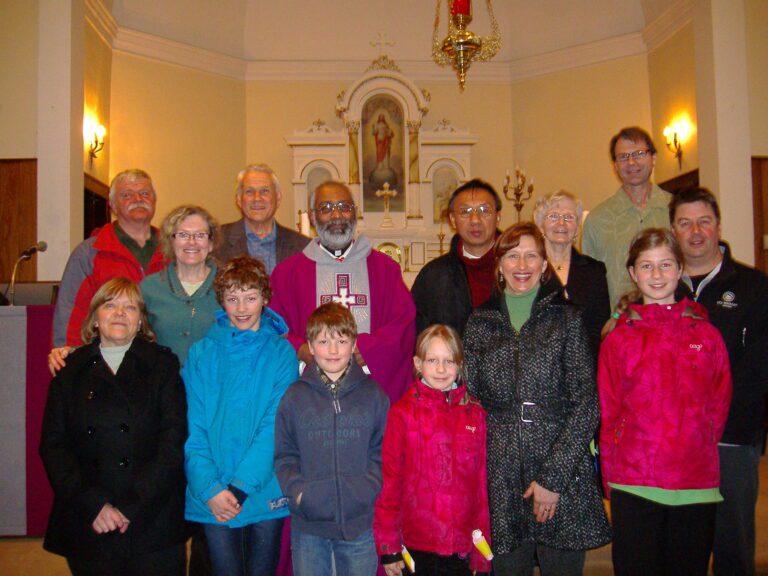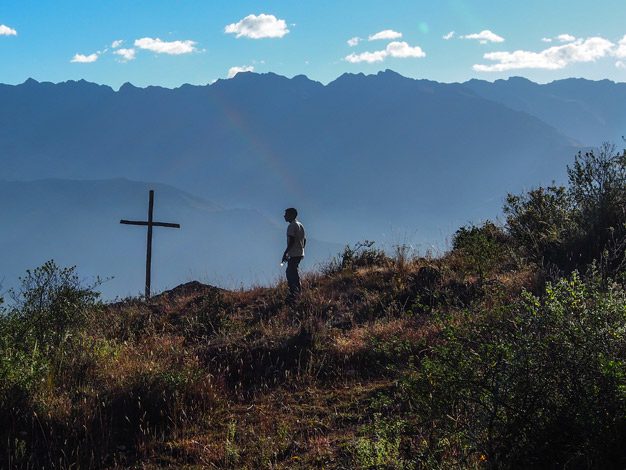Parishes are vital to the Development and Peace ― Caritas Canada movement. From driving donations to raising awareness to inspiring action, parish communities form a unique connection between people in Canada and our partners in the Global South.
Parish representatives serve as the links between Development and Peace ― Caritas Canada and parishioners, carrying out campaigns and inviting others into our work. Many parishes even have Development and Peace parish groups, in which members gather to share in a life of solidarity and faith.
As a grassroots movement, Development and Peace ― Caritas Canada relies on members who are actively engaged in their communities.
While all members are invited to participate in local advocacy and fundraising, a parish representative is responsible for carrying out the fundraising and advocacy work of Development and Peace ― Caritas Canada’s campaigns in their parish, especially during Lent and in the fall. Many parish representatives also bring our work and message to their neighborhoods, schools and other communities. Some parishes, especially ones with larger congregations, have more than one representatives or even form a dedicated Development and Peace parish group.
Parish representatives’ responsibilities and activities of can vary, and even a small commitment can make a big impact. Depending on time and capacity, a parish representative might do one or more of the following:


From speaking at Mass twice a year to holding regular group meetings, there is never too much or too little that anyone with a heart for justice can do as a parish representative. Talk to your local animator and diocesan council chair about being a parish representative today!
The diocesan council is the governance and decision-making body in a diocese, made up of local Development and Peace ― Caritas Canada members. Parish representatives are invited but not required to attend diocesan council meetings. In parishes with several representatives, one person serves as a liaison between the diocesan council and the Development and Peace parish group. You can learn more in our Diocesan Council Guide.
All resources are available in the campaign section of our website. If you have trouble locating them or have an idea for a resource that is not available, ask your local animator for help.


Catholic Social Teaching covers all spheres of life – the economic, political, personal and spiritual.
With human dignity at its centre, a holistic approach to development founded on the principles of CST is what Pope Paul VI called ‘authentic development’.
Explore the Catholic Social Teaching principles and how they guide the work of Development and Peace.
About us
Our work
Get involved
Ways to give
Resources
Get in touch
555 René-Lévesque Blvd. West, 8th Floor
Montreal (Quebec) Canada H2Z 1B1
Phone: 514-257-8711
Toll-free: 1-888-234-8533
Fax: 514-257-8497
Email: info@devp.org
Charity number: 1 1882 9902 RR 0001


Our international cooperation program is carried out in part with the financial support of the Government of Canada acting through Global Affairs Canada.
Development and Peace — Caritas Canada is the official international solidarity organization of the Catholic Church in Canada and the Canadian member of Caritas Internationalis.
Copyrights © 2024
Don’t miss anything about the work of our international partners or our awareness and mobilization campaigns.
Sign up now for our newsletter.